"It couldn’t have been more off the mark if a plasticine dog was added to the cast and it was retitled William Wallace and Gromit."
There are countless films that are based on true stories, or depictions of real events. A lot of the time, these are done very well, but sometimes there are specific omissions or misleading events that turn fact into fiction.
Netflix
So, here are 14 "historical" films that have some glaring inaccuracies:
1. Argo

Warner Bros. Pictures
While being a great film, and one that took home the Academy Award for Best Picture, there were certain inaccuracies – or actually omissions – that didn't go unnoticed.
The general outline of what happened is true, but the portrayal of Canada, and particularly the ambassador's role in the rescue of six U.S. Embassy staff members was greatly underplayed. The Ambassador himself, Ken Taylor, said he felt slighted by the movie, arguing that it made Canada seem like it played a minor part, rather than the crucial role he and the Canadian embassy actually had in the crisis.
On the movie, Ken had this to say: "In general it makes it seem like the Canadians were just along for the ride. The Canadians were brave. Period."
2. The Imitation Game
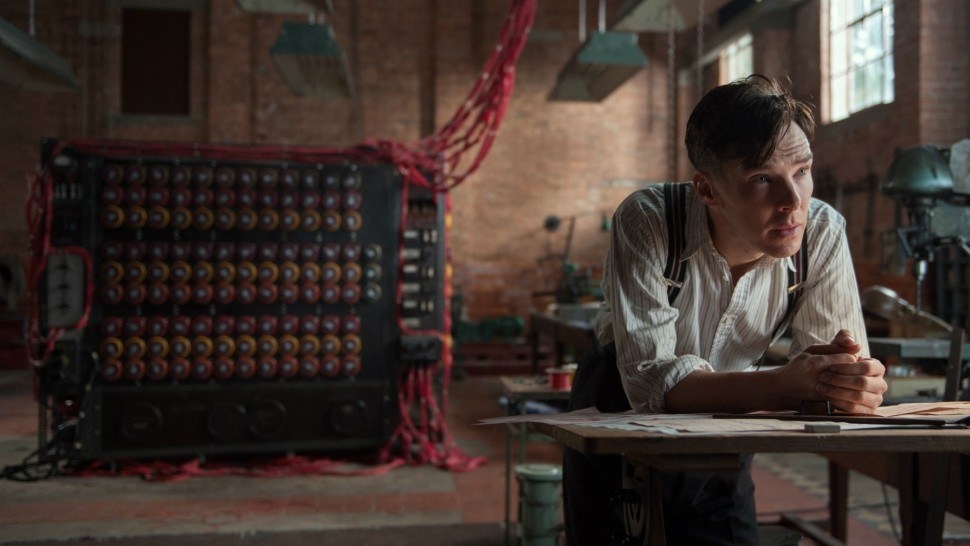
The Weinstein Company
Throughout this movie about cracking the enigma machine, we see three parts of Alan Turing's life, and in all three there are a number of inaccuracies, particularly about Turing himself. Early dramatisations include Alan learning that his best friend had died out of the blue. While this did indeed happen, Alan was actually forewarned about his best friend's condition.
One important inaccuracy is the storyline with the Soviet spy, John Cairncross, who we see in Alan's team. Yes, John was at Bletchley Park, but not as part of Alan's team, and it would have been incredibly unlikely that they ever met.
The film also shows John blackmailing Alan, who is forced to conceal John's espionage upon finding out he is a spy. This has been described as "offensive" to Alan – as it suggests that he would commit the treasonous crime of concealing a spy inside Bletchley Park. One damning review of this inclusion had this to say:
"Creative licence is one thing, but slandering a great man’s reputation – while buying into the nasty 1950s prejudice that gay men automatically constituted a security risk – is quite another."
3. Braveheart
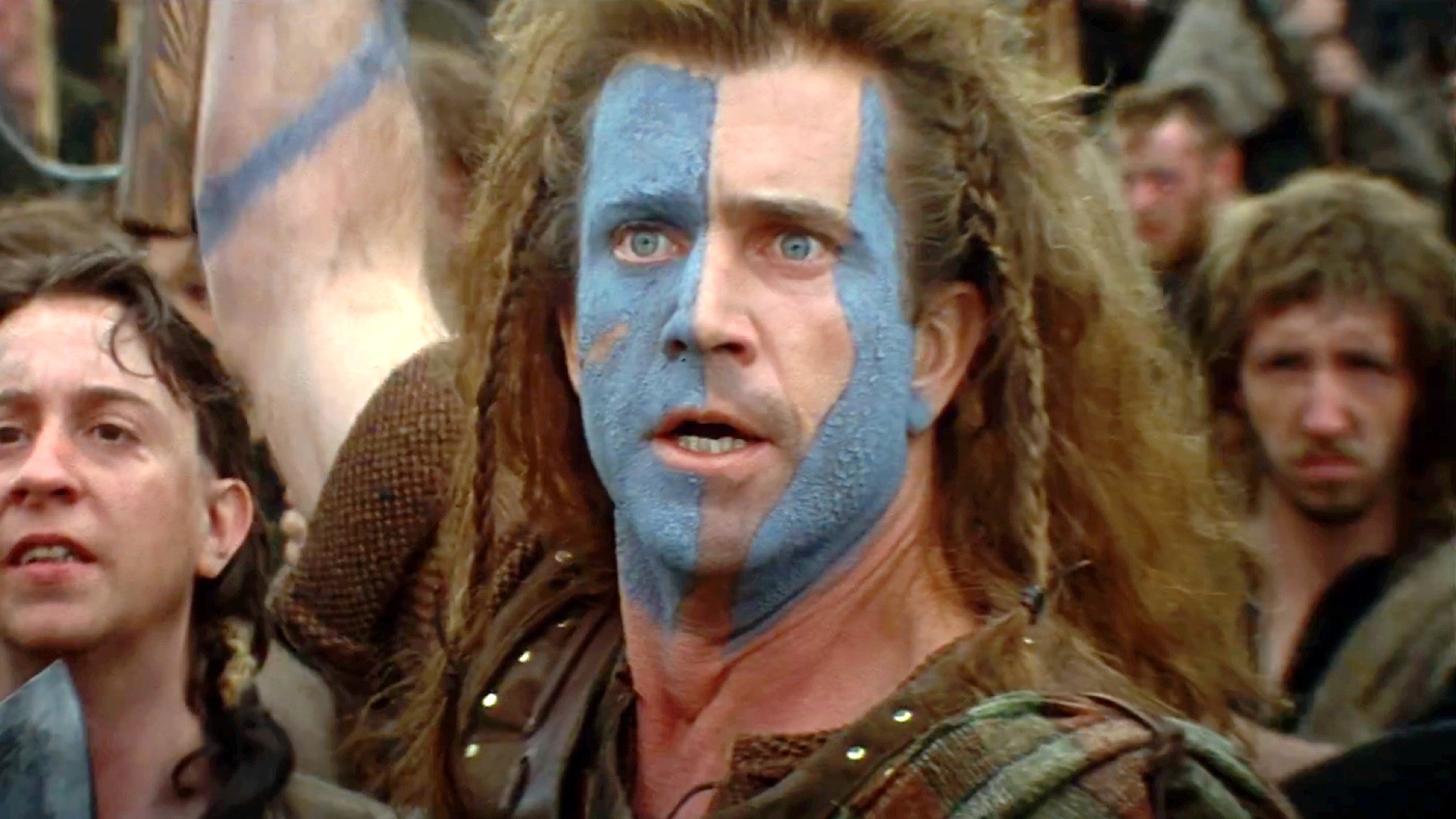
20th Century Fox
Mel Gibson's film about William Wallace and Scotland's first war for independence has become well known for its inaccuracies. In fact, author John O’Farrell once wrote: "It couldn’t have been more off the mark if a plasticine dog was added to the cast and it was retitled William Wallace and Gromit."
Even the title itself is misleading because if anyone was called "Brave Heart" during this time it was Robert the Bruce, not William Wallace. Also, The iconic Battle of Stirling Bridge scene is also missing two key elements – the rebellion leader Andrew de Moray and, of course, the actual bridge.
William's backstory is also given a rejig, something that one critic disapproved of, saying: "Any hint of his descent from the lowland gentry (i.e., the lesser nobility) is erased, and he is presented as an economically and politically marginalised Highlander and 'a farmer'."
Further inaccuracies include William's relationship with Isabella of France, something that was actually fabricated, and also the infamous warpaint seen on Mel Gibson's face, which was apparently not used at that time.
4. Hamilton
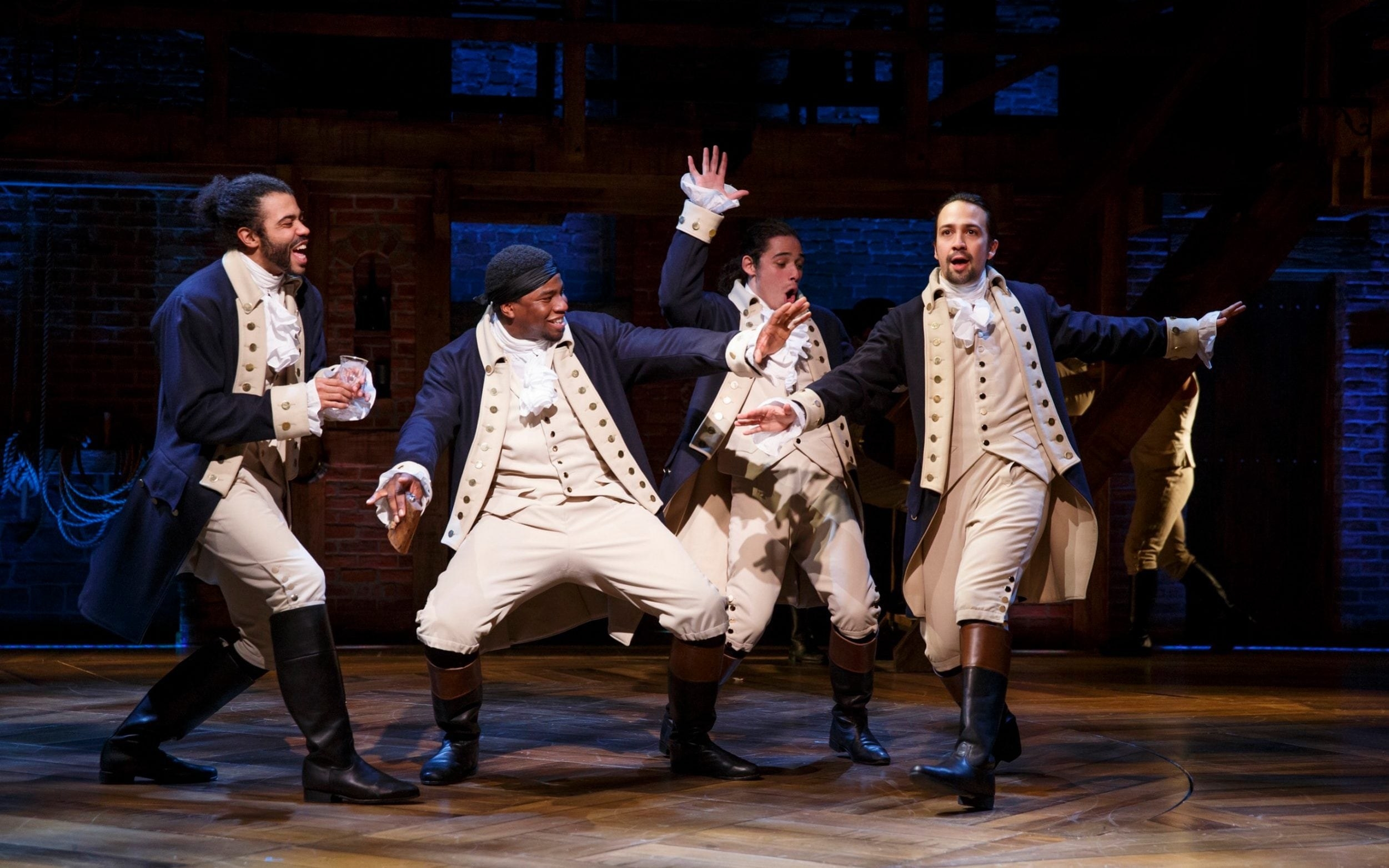
Disney+
The hit musical, which has also been released as a film on Disney+, has found great success in its telling of Alexander Hamilton's story. Many claim there are a number of historical inaccuracies concerning Hamilton himself and the story that's told, perhaps the most damning misinterpretation is the life and character of Aaron Burr.
Aaron Burr comes across as a mere pragmatic opportunist without a moral compass, but his commitment to fighting for those who don't have as much of a voice as Hamilton is completely ignored. The villainous reputation, that Hamilton, arguably helps maintain, was in fact created by Aaron's political rivals centuries ago.
The more we look into the ideals and the actual actions of both Hamilton and Burr, it becomes clear that Lin-Manuel Miranda chose to lionize the wrong man.
5. Pearl Harbor
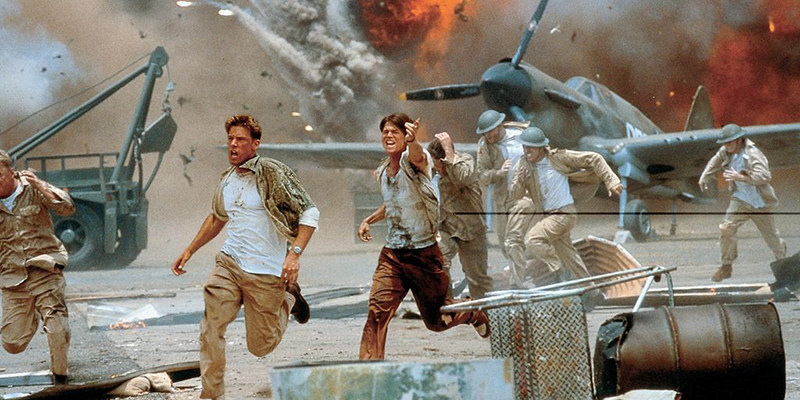
Buena Vista Pictures Distribution
For the purposes of drama, there are clearly a variety of timeline tinkering and other details that are inaccurate throughout the movie, but the most glaring, and misleading is to do with one particular aspect.
In the film, we see Japanese planes deliberately attacking a civilian hospital – a horrific crime that never actually happened. In fact, reports from survivors of the attack all recall that Japanese fighters would avoid any fire towards civilian buildings, and would sometimes manoeuvre onto new paths, despite the detriment to their safety.
Michael Bay said that he added this to make the attack seem more "barbaric," which is puzzling considering how already devastating the actual events were, without any falsifications added.
6. Cool Runnings
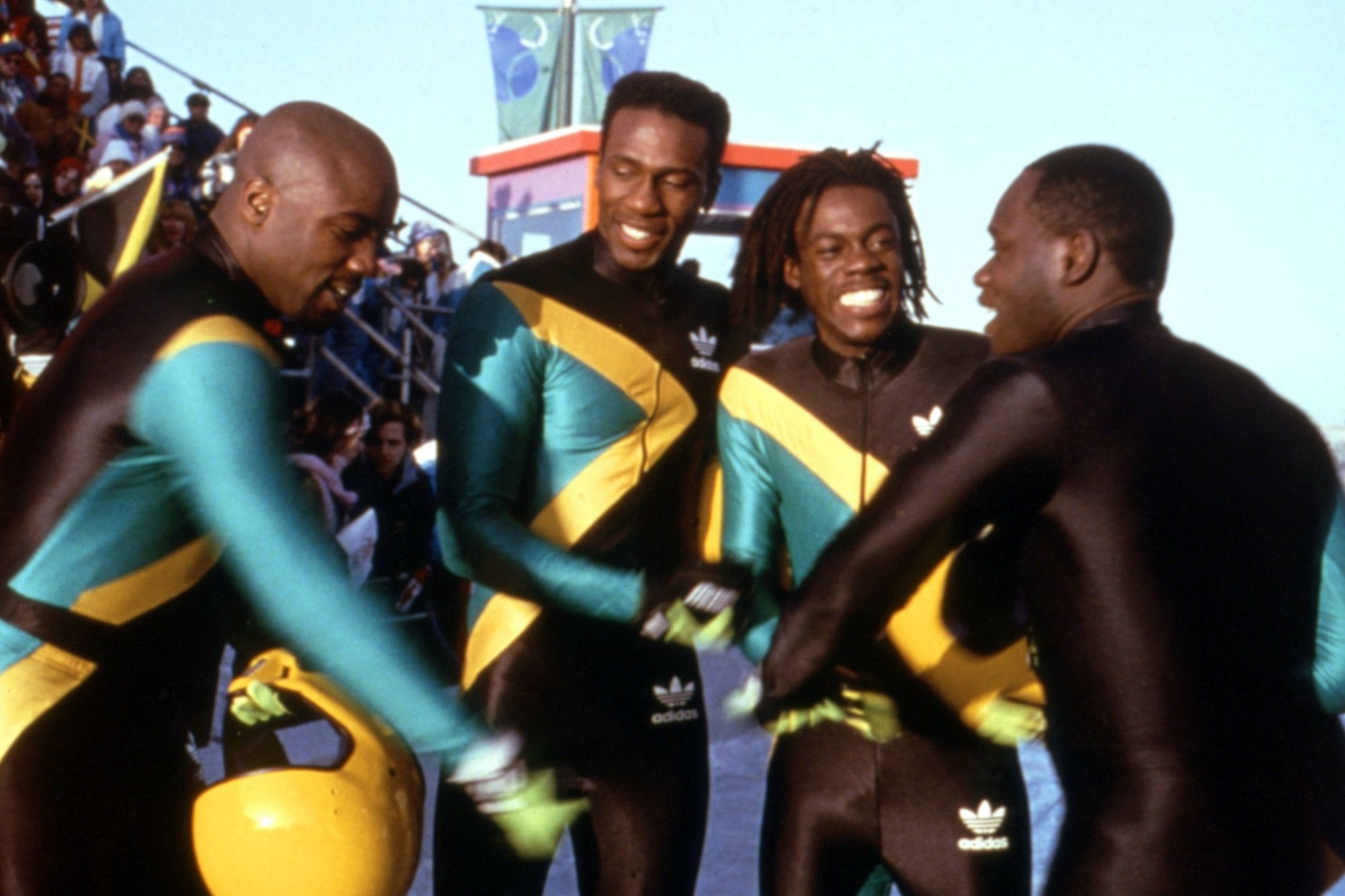
Buena Vista Pictures
This beloved movie is based on the true story of the 1988 Olympic Jamaican Bobsleigh team, but many of the details are fictional.
The actual team, who in the film are mostly made up of track sprinters, were actually recruited from the Jamaican army. The story of coach Irv was also fictionalised, and the team's appearance at the games in real life was very different to the one portrayed.
Instead of the ridicule and aggression shown to them, that we see in the film, the team were actually given a warm welcome. In fact, they were so popular they couldn't leave the Olympic Village for fear of getting mobbed.
The famous scene with the team lifting the sleigh across the line also didn't happen, although they didn't have a nasty crash and were forced to push it down the track.
7. JFK
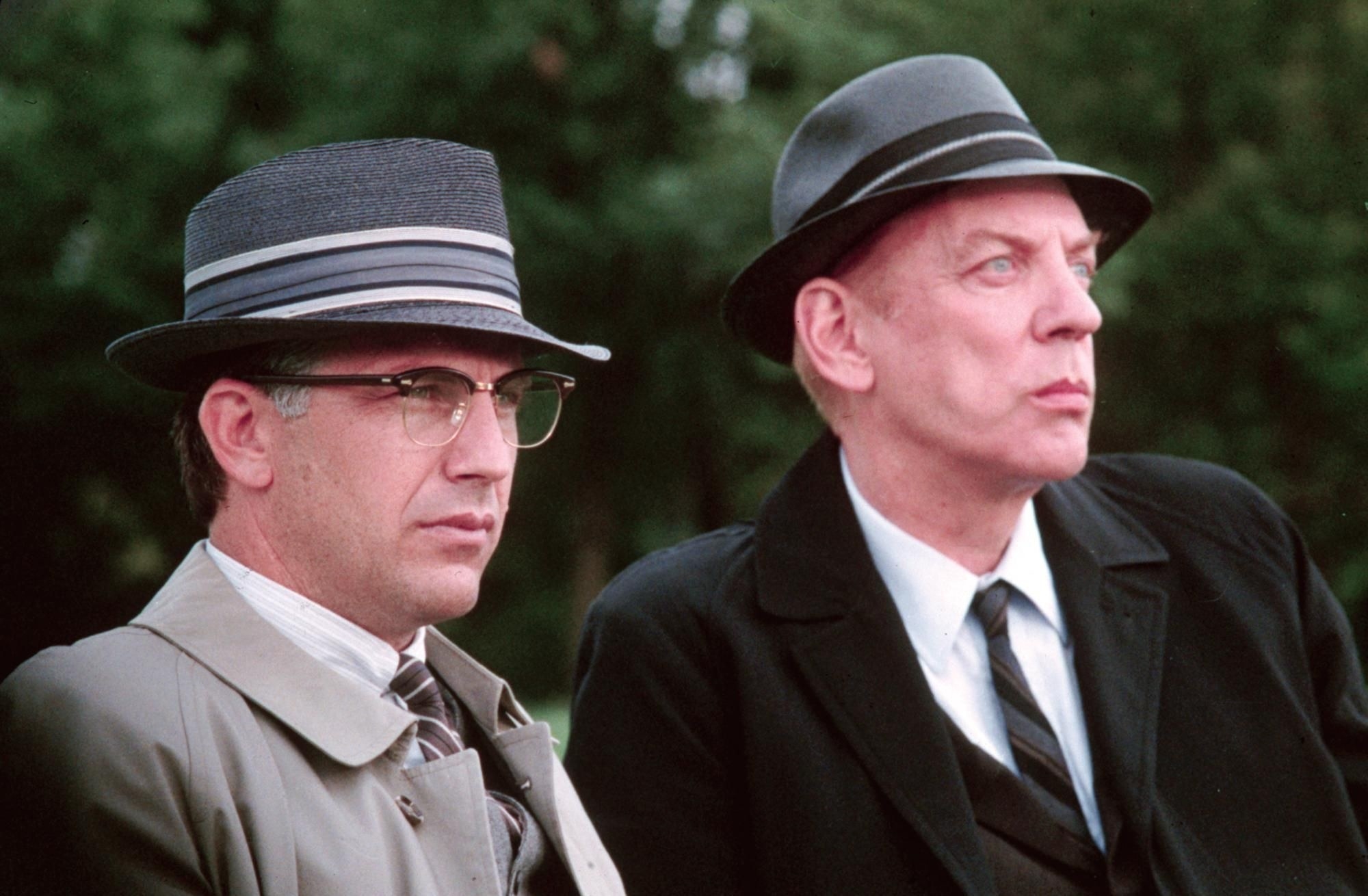
Warner Bros.
Oliver Stone's enthralling film about the assassination of JFK was extremely well-received for the actual filmmaking but in terms of historical accuracy, it's been widely criticised. One review called it, "one of the most appalling travesties of history you're ever likely to see."
Much of the criticism comes from the fact that, with the documentary style beginning, and use of actual footage, the movie seems to portray itself as factual, and thus misleads the viewer.
A lot of the evidence for the conspiracy was totally made up, including, somewhat problematically, the falsification of David Ferrie's confession. David, who was a real person, is played by Joe Pesci and eventually confesses to the entire conspiracy – something that the real-life David never did.
Many of the inaccuracies follow this pattern, which is why historians seem to agree that, while it's a good film, it's certainly a work of fiction.
8. Apocalypto
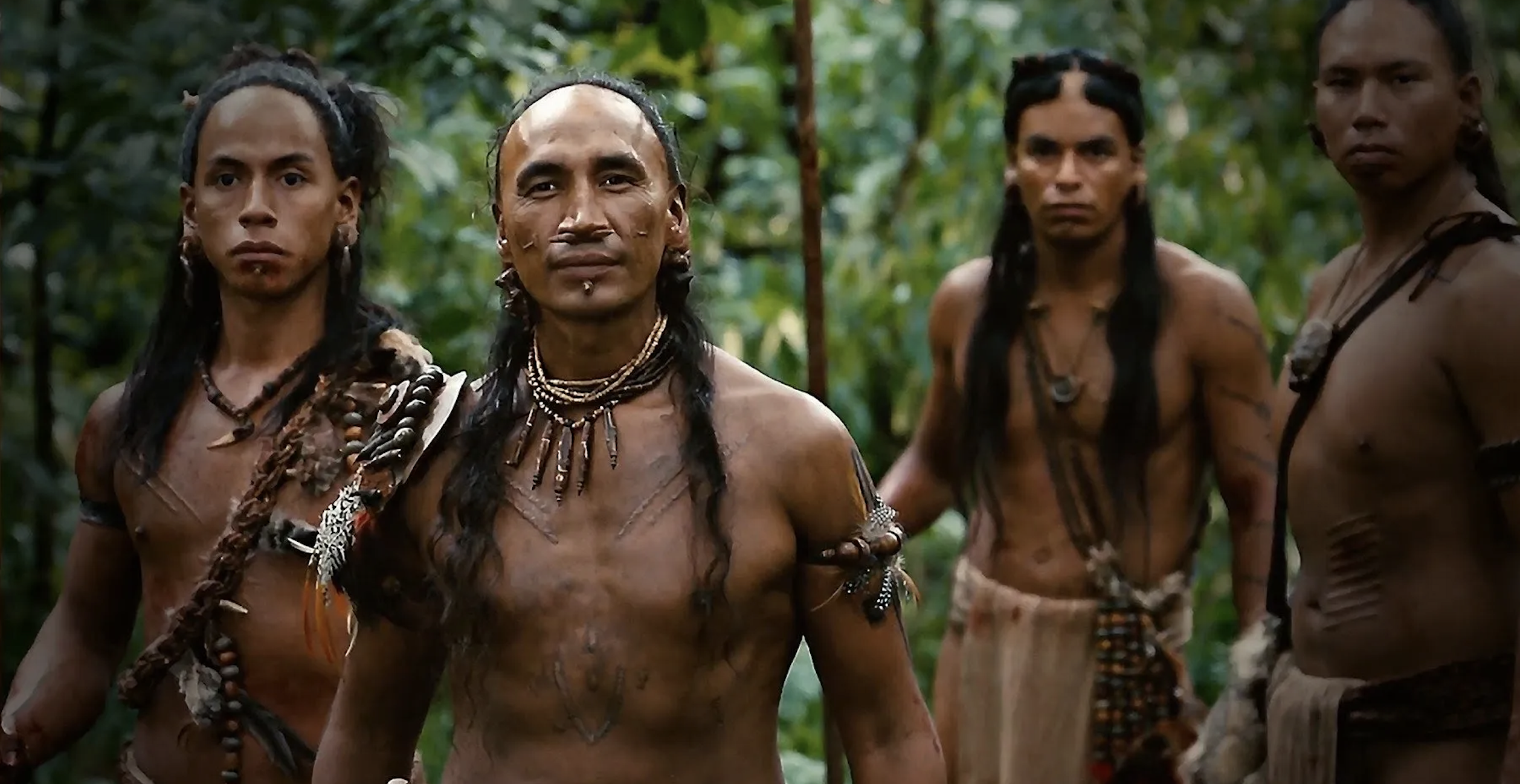
20th Century Fox
Another Mel Gibson "historical" action film, this one set during the Mayan empire in Central America. The movie has a constant theme of barbarism, with Mayan culture being portrayed through a Western lens of savagery.
Despite a decent critical response to the film in terms of action and acting, the depiction of Mayan culture was called by some experts as "offensive". This is what Julia Guernsey, an expert on pre-Columbian Mesoamerica, said about the film:
"There's a lot of really offensive racial stereotyping. They're shown as these extremely barbaric people, when in fact, the Maya were a very sophisticated culture."
For specific inaccuracies, she said the film presents, "an inaccurate hodgepodge of architecture." With inaccurate murals, untrue dancing rituals and other falsified "historical" practices created with barbarism in mind.
9. 10,000 BC
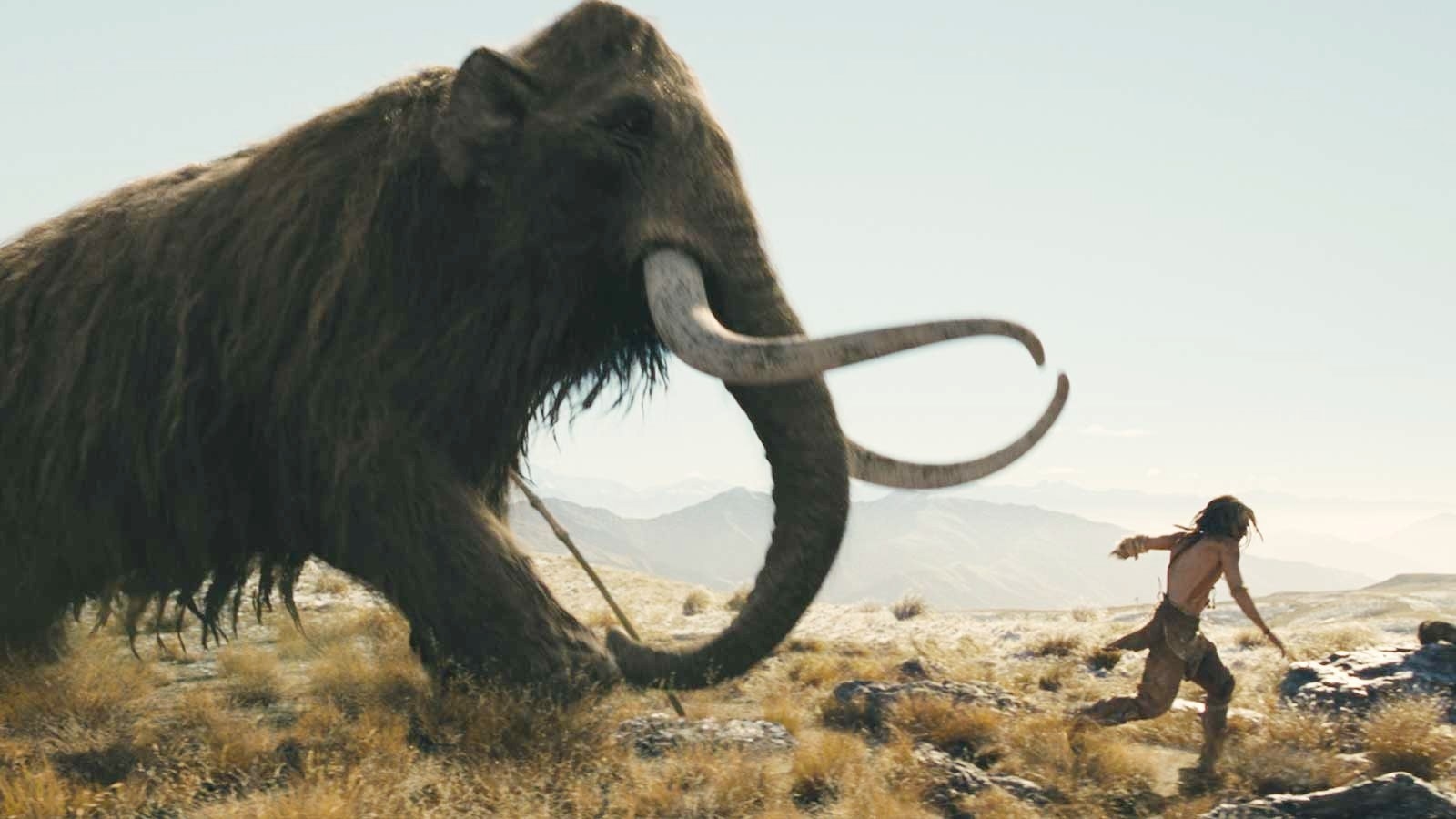
Warner Bros. Pictures
Set in, well, 10,000 BC, this film follows a tribe of mammoth hunters. While you could argue that it's a visually impressive film, critics agree that it is both historically and archaeologically inaccurate.
Critic A.O. Scott called the film, a “sublimely dunderheaded excursion into human prehistory,” which probably has something to do with the fact that we see woolly mammoth's helping to build the pyramids. Not only did this not happen, we see the building of the pyramids about 8,000 or see years before they were actually built.
10. The Patriot
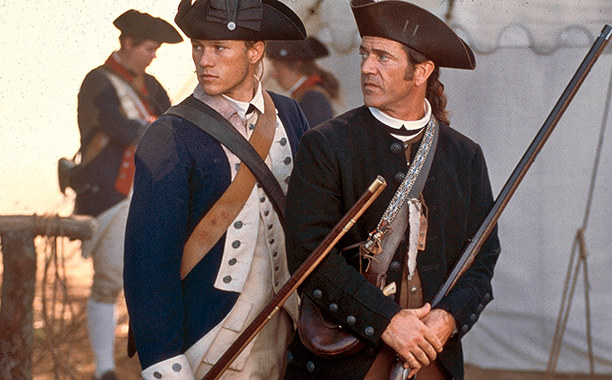
Sony Pictures Releasing
Oh, what's that, another Mel Gibson film taking historical liberties? Well, this film about the American War of Independence received immediate backlash from historians for its portrayal of the British and American forces during the war.
Stephen Hunter, a critic and historian said of the movie: "Any image of the American Revolution which represents you Brits as Nazis and us as gentle folk is almost certainly wrong.”
Furthermore, the pioneer main character portrayed in The Patriot is seen to be a hero and family man, which is rather different from the individual he was based on, Francis Marion. In reality, Francis was, according to a historian, "very active" in persecuting indigenous people, and would also commit unspeakable atrocities, meaning he is not someone who should be portrayed as a hero.
11. Bonnie and Clyde
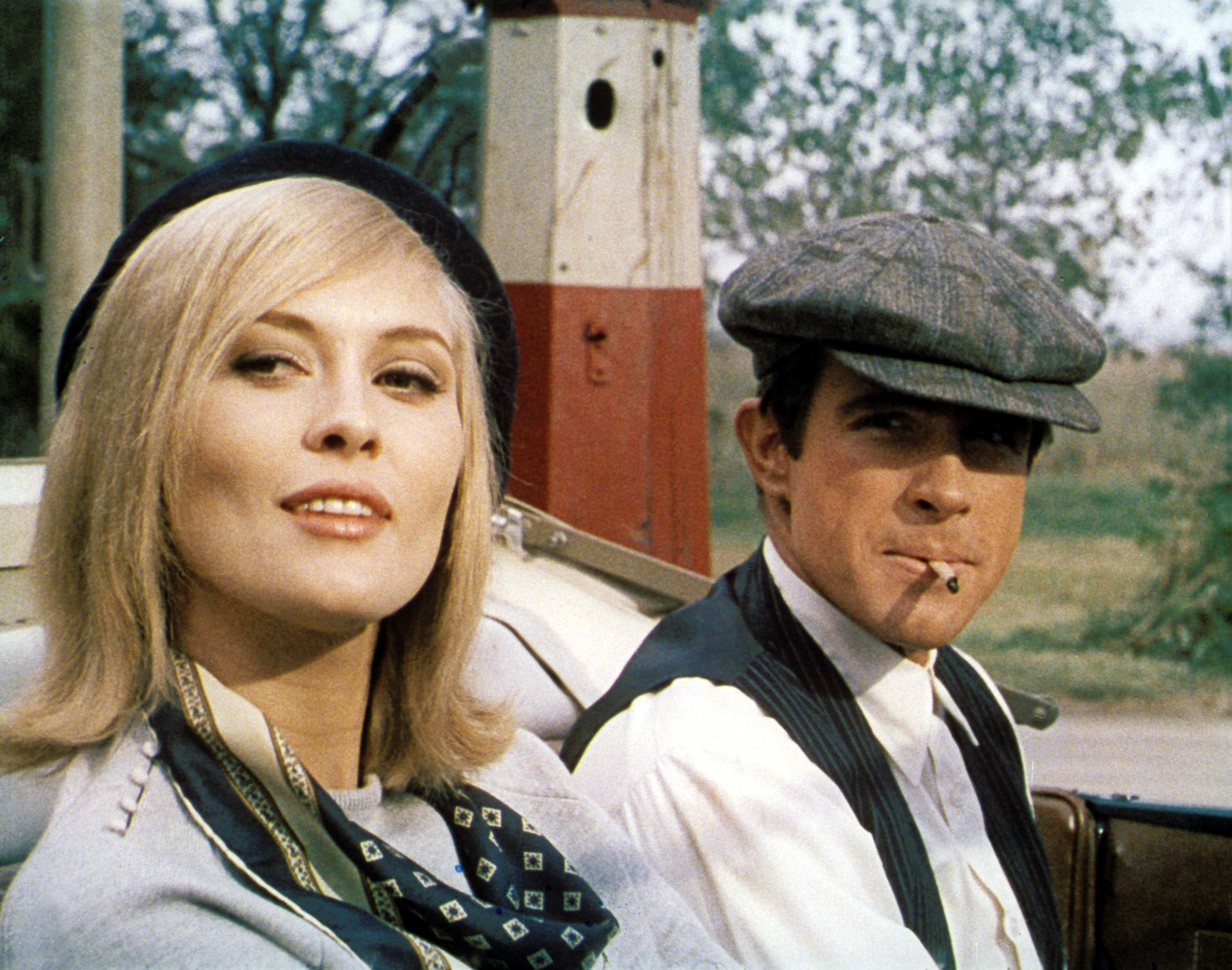
Warner Bros.-Seven Arts
When films are based on real people, they can often perpetuate myths about those involved. With Bonnie and Clyde, the film paints a picture of the two criminals that isn't actually that close to the truth.
One review of the film, after it came out, said: “[Clyde] fancied himself something of a latterday Robin Hood, robbing only banks that were foreclosing on poor farmers and eventually turning into a kind of folk hero.”
However, looking more into the true story, Nate Hendley, author of Bonnie and Clyde: A Biography, said the two were “much more nefarious and self-serving.” He revealed that, in reality, they never really robbed banks, and instead targetted small-town grocery stores and gas stations where working people would shop.
12. Foxcatcher
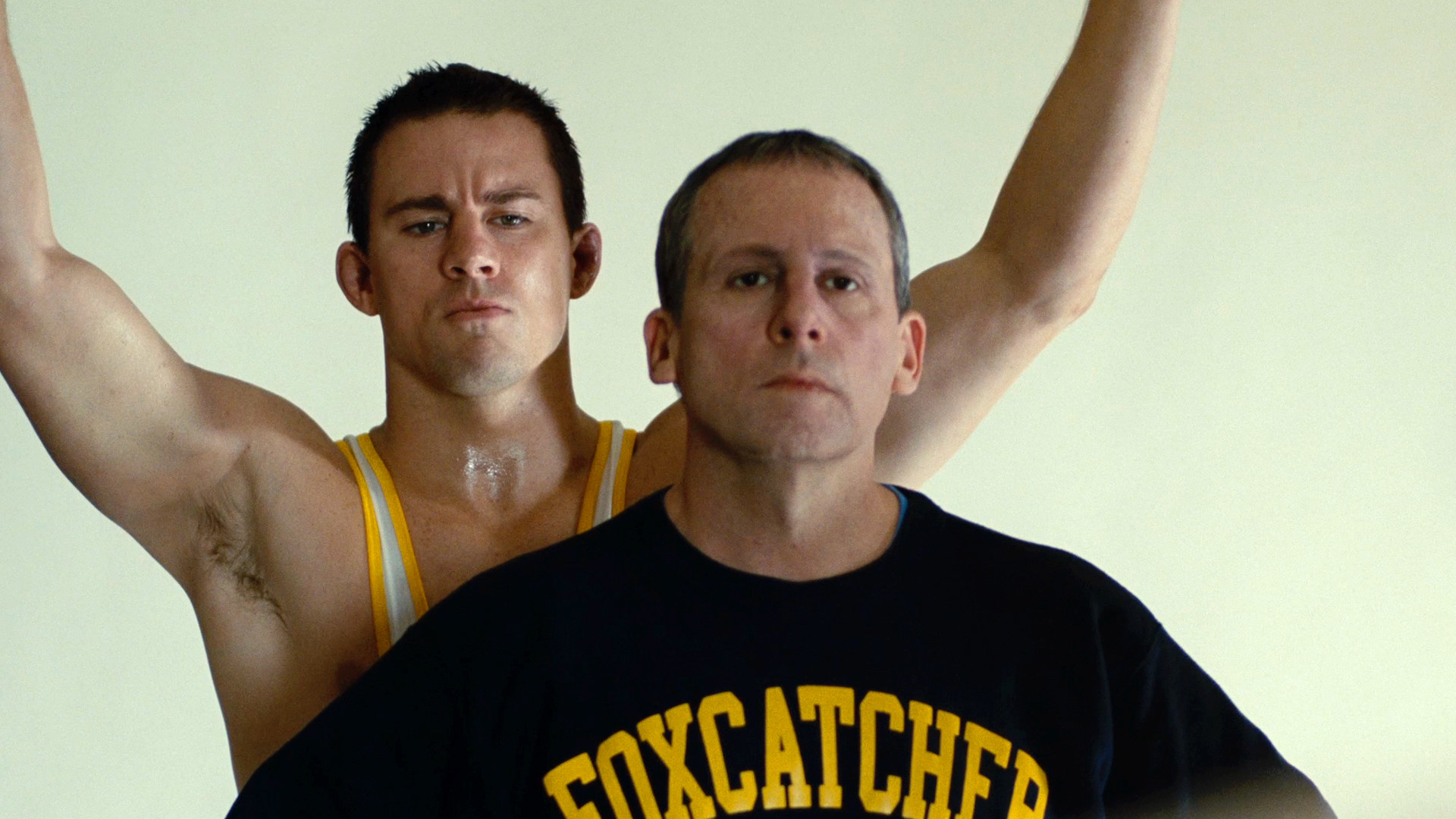
Sony Pictures Classics
The movie tells the story of Multimillionaire John Eleuthère du Pont and Olympic wrestler Mark Schultz. We see du Pont invite the down-on-his-luck wrestler to come and live and train at his luxury home, before enticing him into a physical relationship, along with forcing drugs on him.
There are a number of inaccuracies here. In real life, Mark was always wary of du Pont, and actually didn't immediately go to live with him. Also, Mark disagreed with the portrayal of their physical relationship, and took to Twitter to express his views on the film: “Everything I’ve ever said positive about the movie I take back. I hate it. I hate it. I hate it. I hate it. I hate it. I hate it. I hate it.”
Other critics have said that the depictions of their relationship were done in the mind of the filmmaker, rather than the testimony of the only surviving individual who was there. One critic said: “In its grim, art-movie way, Foxcatcher is a form of gay-bashing.”
13. Gladiator
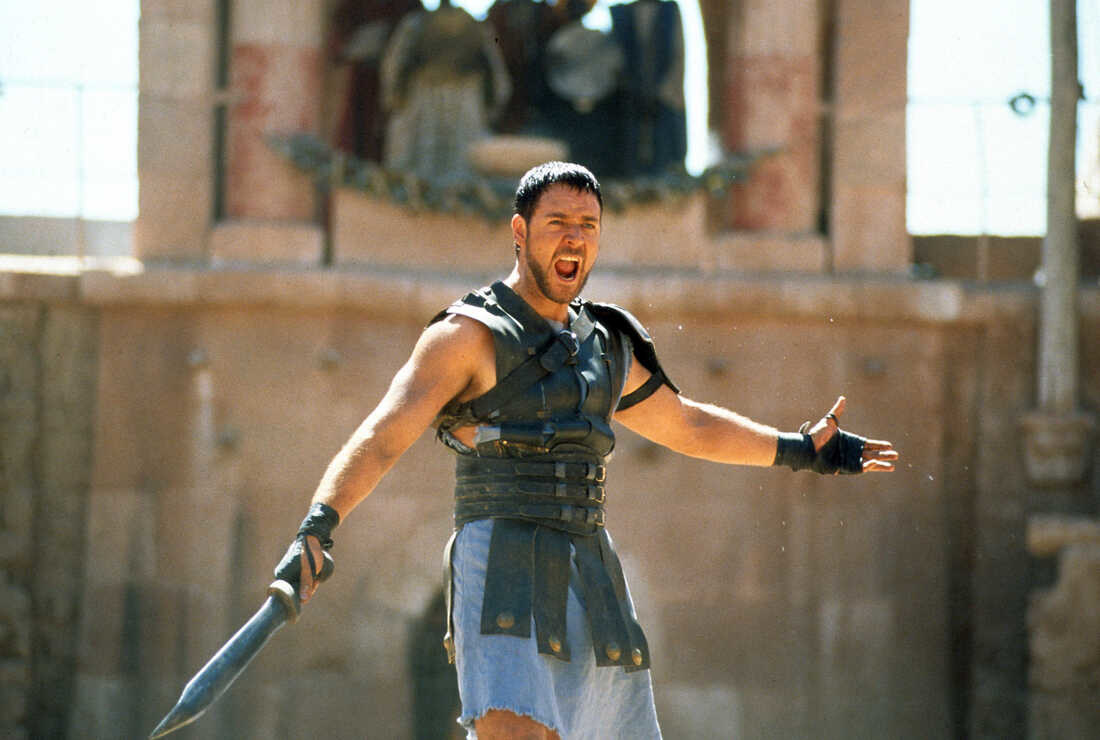
Universal Pictures
In this epic, there were quite a number of artistic liberties taken. Firstly, the actual gladiator battles themselves weren't as brutal as the film portrays. The carnage we see in the gladiator ring was usually just for POWs and criminals to face, whereas gladiators were more valuable, and thus better protected.
Prof. David Potter said that ”Most fights ended with first blood or surrender, not death," and also revealed that the fights were usually one-on-one, not free-for-all.
14. U-571

Summit Entertainment / Universal Pictures
This 2000 film is about a US submarine crew in 1942 and their mission to attempt to steal the infamous enigma machine from a German U-Boat during the second world war.
The historical inaccuracies were ripe in this movie. First of all, the mission this seems to be based on is the story of Operation Primrose, where the German submarine U-110 attacked an Allied convoy. When the German submarine was damaged and surfaced, the British ship HMS Bulldog boarded it and took all the coding papers it could including an enigma machine.
The thing is, Britain already had the machine, even by this point, let alone 1942, and had cracked the code almost a year before this film was set and seven months before the US entered the war. The various inaccuracies including date, actual mission, and nationality were enough for Tony Blaire to condemn the movie in parliament, calling it an insult to the Royal Navy.
.png)
 1 year ago
5
1 year ago
5









 English (US) ·
English (US) ·